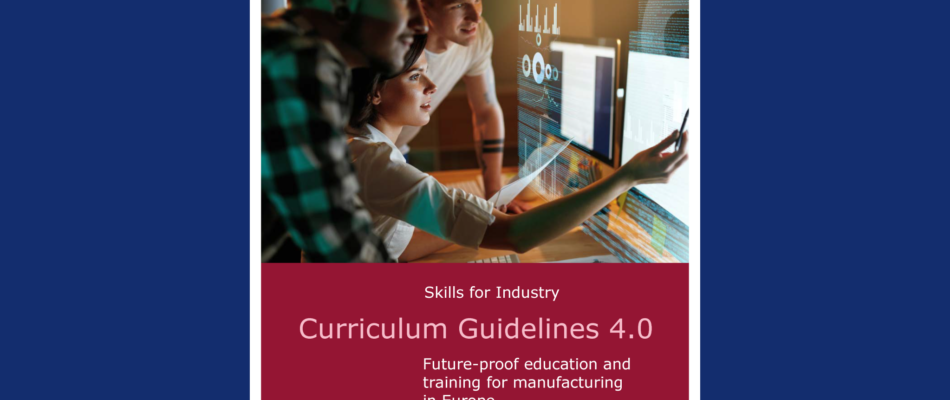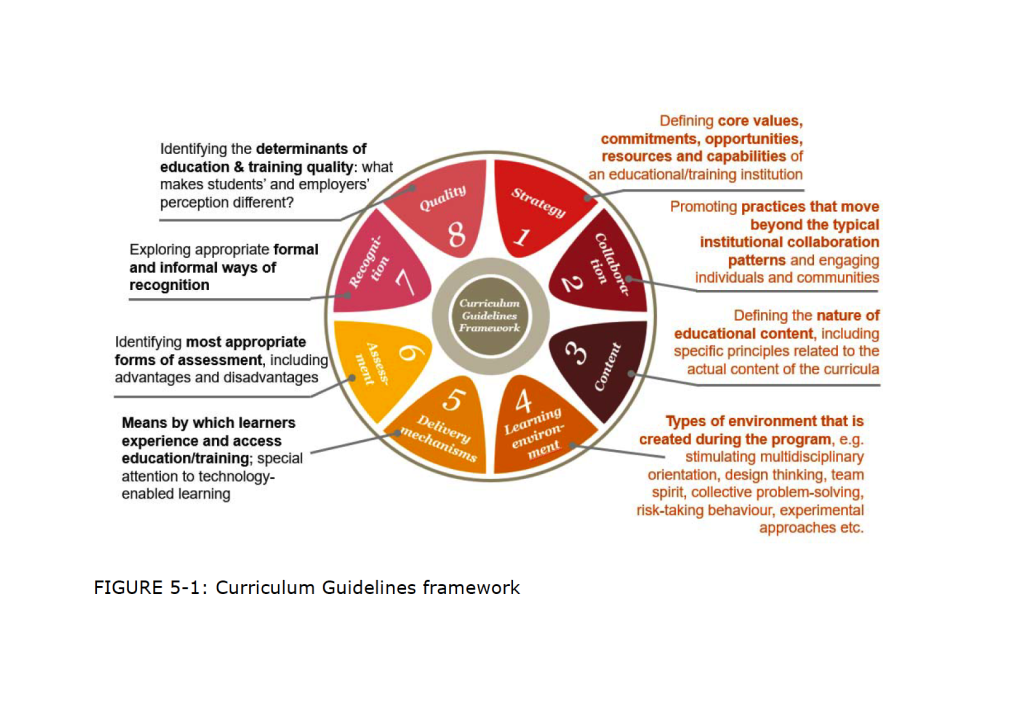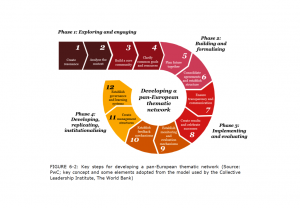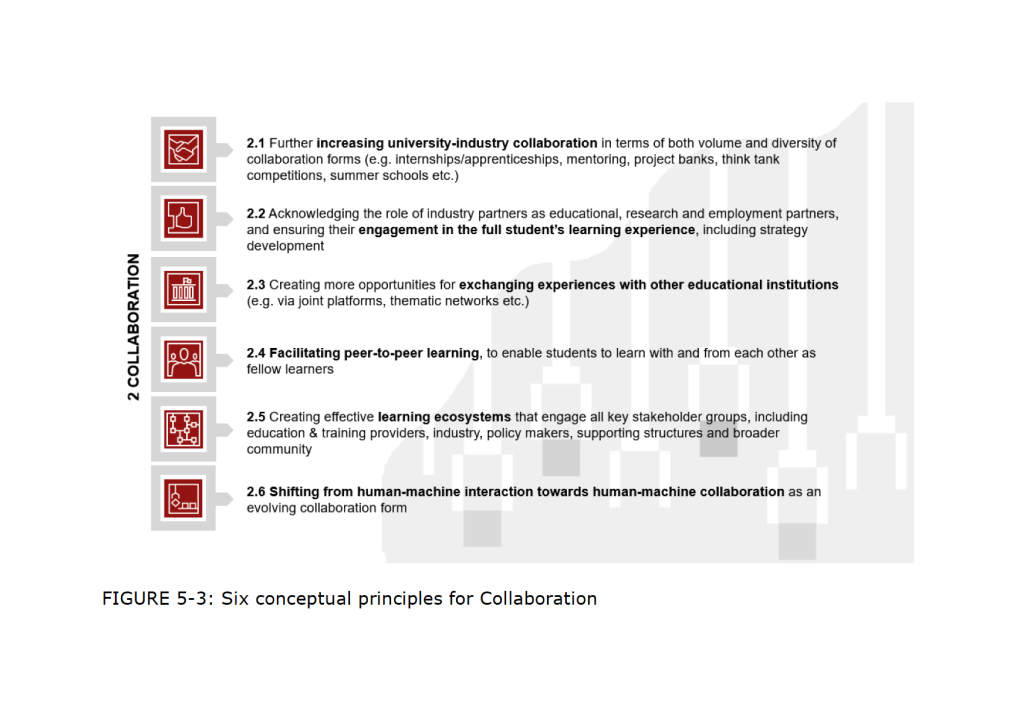
Skills for industry curriculum guidelines 4.0
Future-proof education and training for manufacturing in Europe: final report – Study
We are in the age of the Fourth Industrial Revolution. The main challenges are related to the exponential growth of digital tools that include robots, cobots, connected objects, communication systems, data centers and associated energy consumption. The industrial sector must find new technologies, new designs, new architectures, new communication and data storage concepts, in order to increase the performances of the digital world and, at the same time, to minimise the related energy consumption.
Specifically, Europe needs highly skilled, flexible, emotionally and socially intelligent manufacturing professionals that can solve tomorrow’s problems already today. While skill requirements are changing rapidly, enterprises, especially SMEs, struggle to find the talent they need. For industry, it is crucial to support the upskilling of their workforce towards new and higher-skilled roles, as competition for talent will become even fiercer in the coming years. For workers, there is a need to take personal responsibility for their learning trajectory and embrace the concept of lifelong learning. How can education and training providers keep pace with this unprecedented level of change? How does a future-proof curriculum look like?
While there are already examples of effective approaches towards adapting engineering training to the needs of Industry 4.0, numerous education and training providers only now begin to consider the necessary development. Reshaping curricula is a considerable challenge, implying complex decision-making processes and various administrative obstacles. Many departments and faculties are still dominated by traditional approaches and subject-related ‘silo thinking’, while the new industrial age requires fundamentally new mind-sets and visionary leadership.
The current initiative (January 2018 – December 2019) aimed to address the abovementioned challenges by developing the Curriculum Guidelines 4.0, offering education and training providers a systemised overview of the new ways of organising learning experiences of individuals and groups for Industry 4.0. The guidelines aim to provide key stakeholders with an analytical base for developing curricula for the new industrial age. The objective is to offer a source of inspiration, conceptual guidance and good practice examples. The guidelines aim to be applicable for both designing fundamentally new educational offers and advancing existing curricula, depending on the level of required change.
Download the publication.



